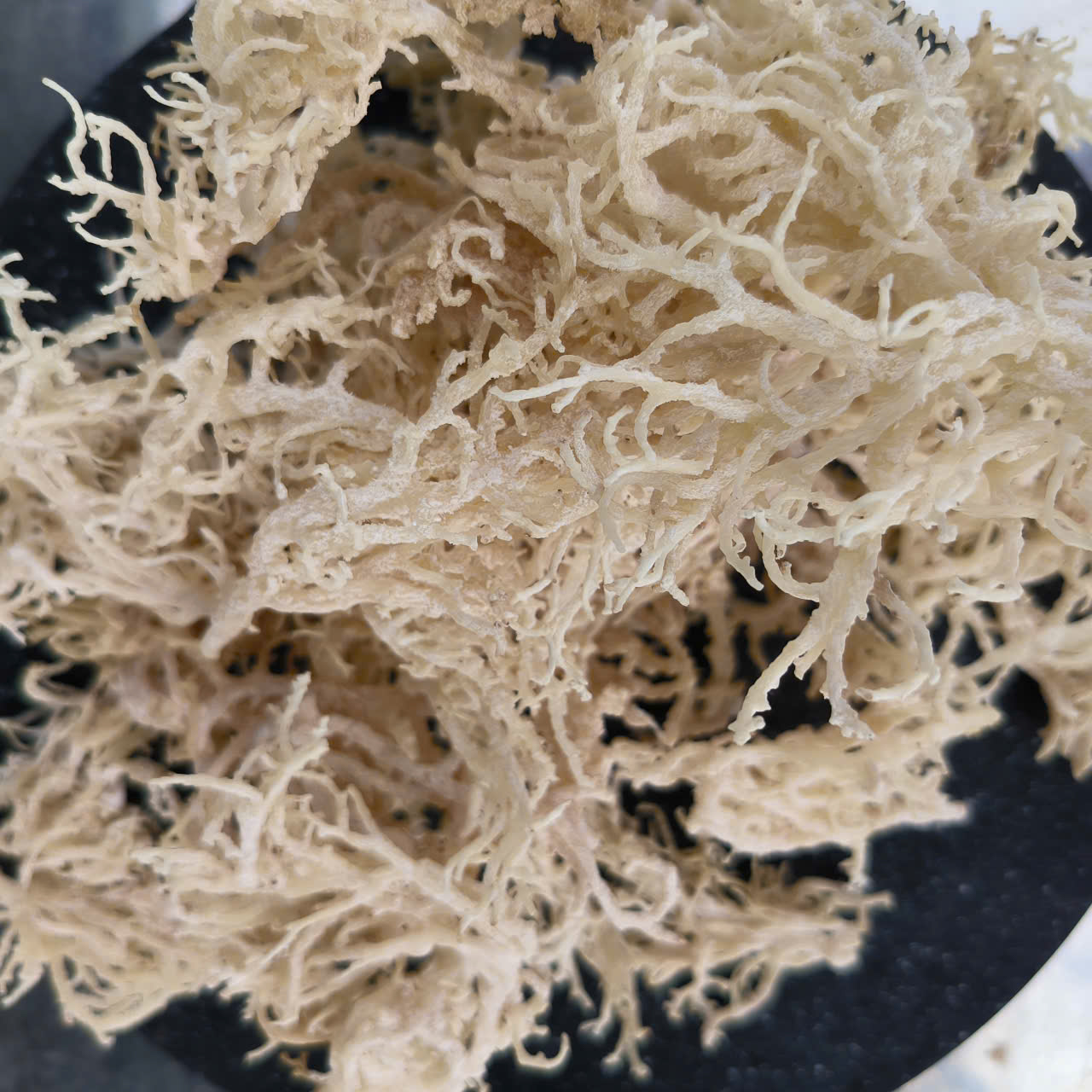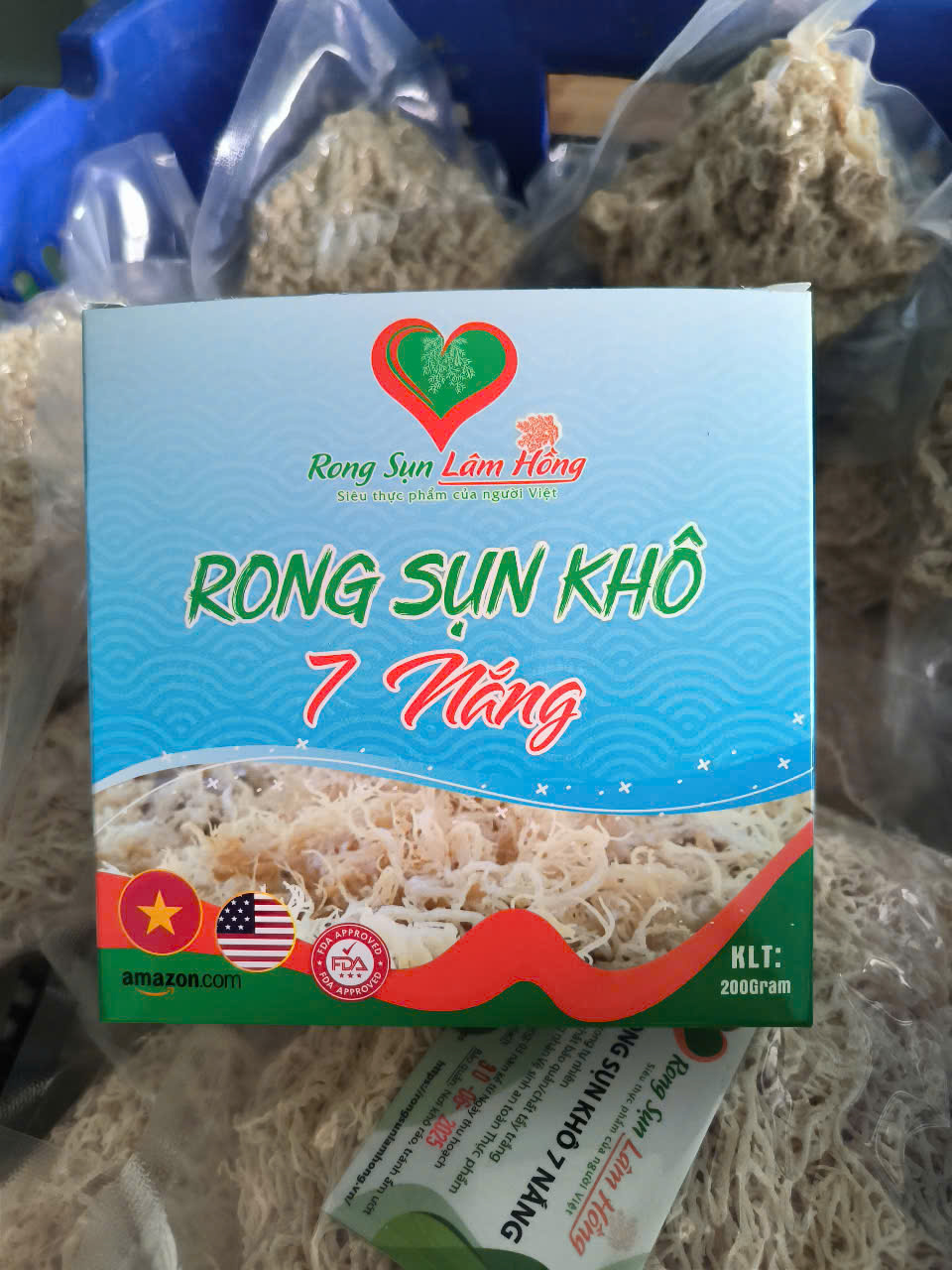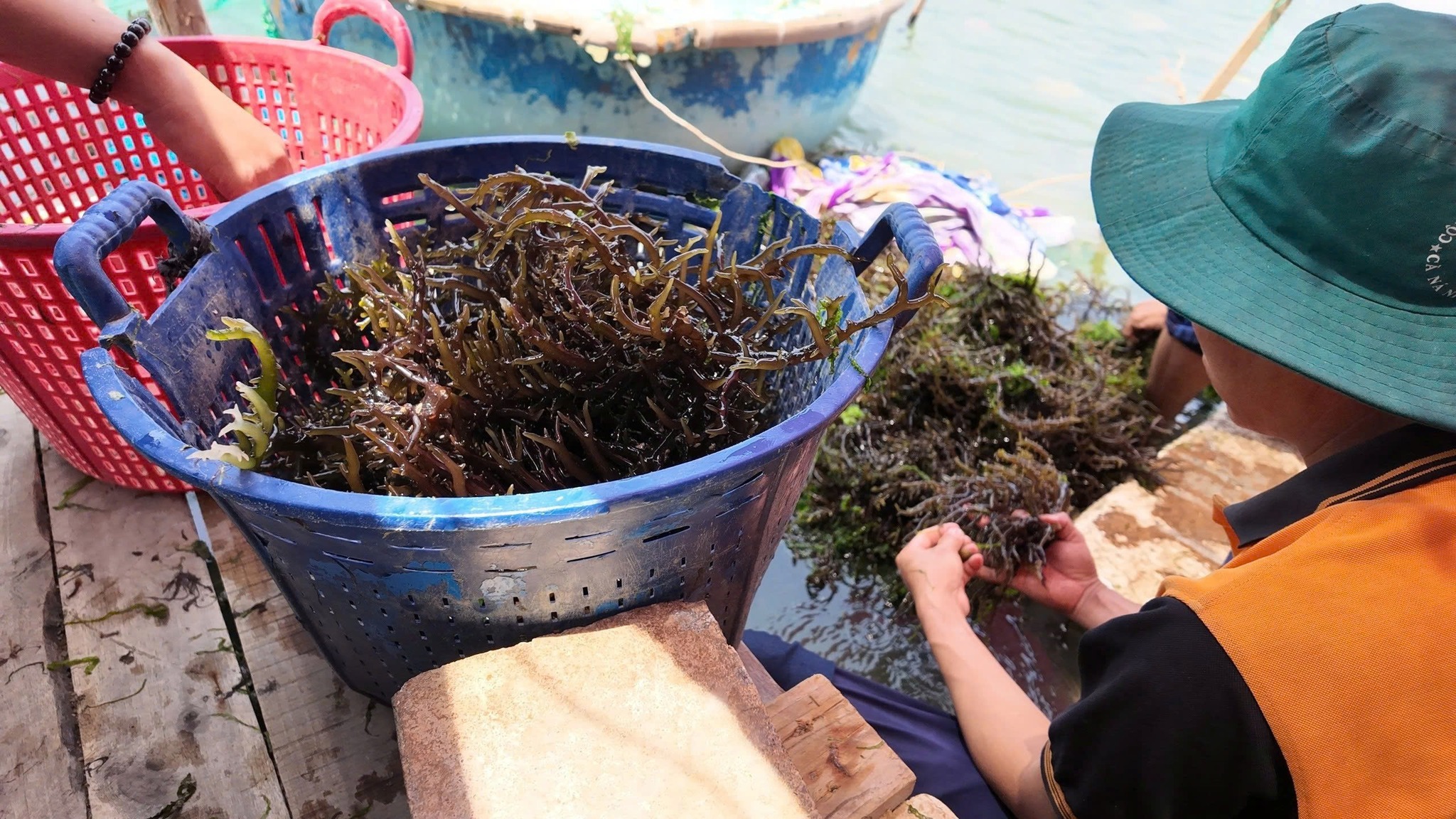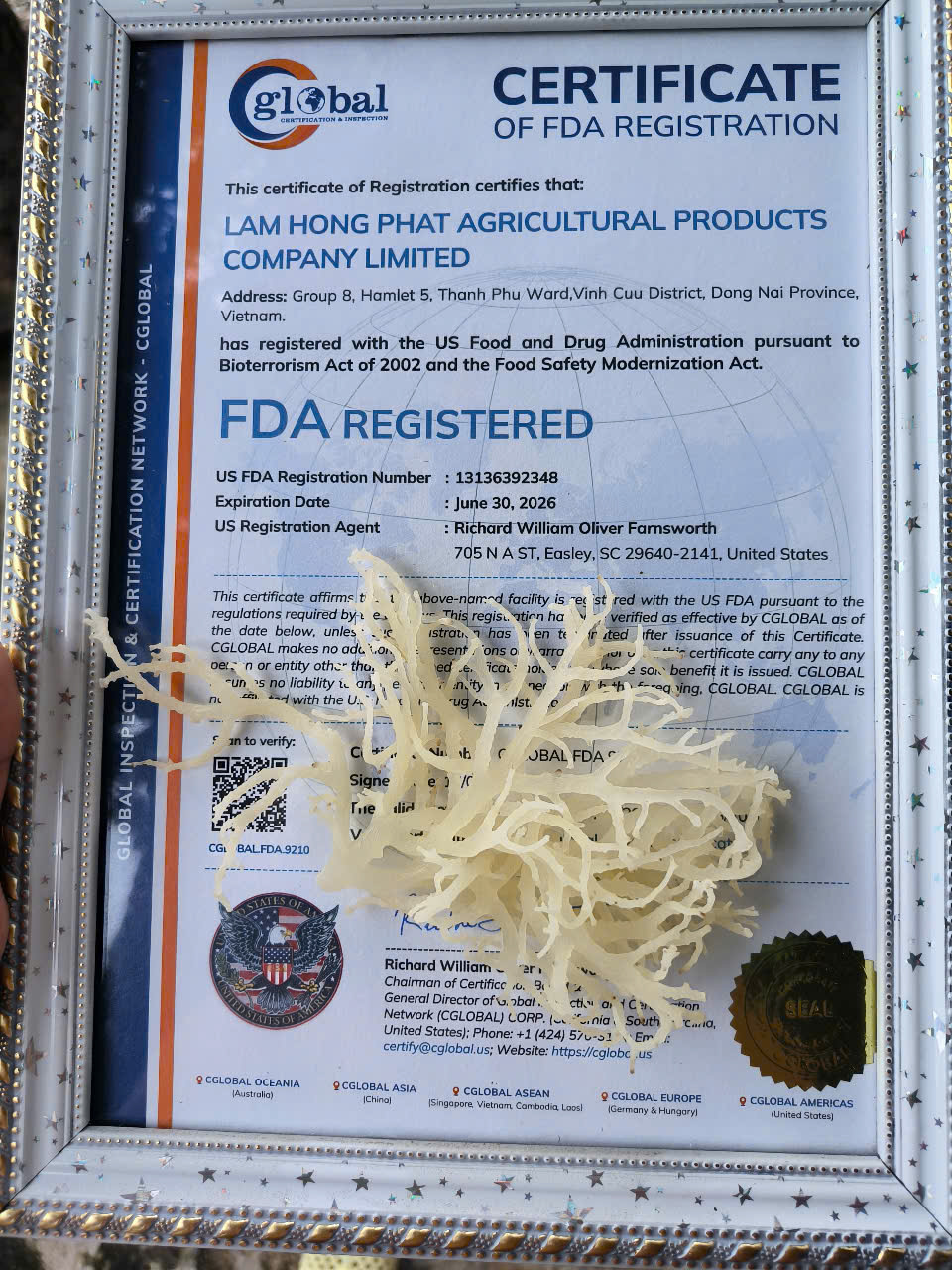As global industries shift toward plant-based and sustainable ingredients, Cottonii seaweed export is emerging as one of the most dynamic and fast-growing sectors. From health-conscious food manufacturers to eco-friendly cosmetic brands, demand for Cottonii seaweed for international markets is reaching unprecedented levels. This article explores the massive potential of Cottonii as a functional ingredient and how exporters can position themselves at the forefront of this transformation.
From a practical perspective, seaweed offers numerous benefits, not only for end consumers who use the product directly, but also for businesses that regard it as a valuable raw material for processing into other products.
1. Cottonii seaweed export – a leading plant-based ingredient in the global sustainability trend
As the world increasingly shifts toward sustainability and green innovation, the demand for plant-based ingredients is on the rise. Modern consumers are not only focused on product efficacy but also value safety, natural origin, and environmental friendliness. In this context, seaweed has emerged as one of the most sought-after raw materials, particularly in the functional food and skincare industries.

Product Images of Lam Hong Sea Moss Brand
2. A rich source of natural nutrition
Seaweed is packed with essential nutrients such as minerals (iodine, calcium, magnesium), soluble fiber, amino acids, B vitamins, and especially biologically active polysaccharides like carrageenan, alginate, and fucoidan. These compounds offer a wide range of health benefits including immune support, anti-inflammatory effects, digestive aid, and anti-aging properties. Thanks to this diverse nutritional profile, seaweed is increasingly used in health supplements that support cardiovascular health, weight management, and immune function.
3. Outstanding applications in natural cosmetics
In the cosmetics industry, seaweed is a highly promising ingredient known for its moisturizing, soothing, antioxidant, and skin-repairing properties. Seaweed extracts are commonly found in face masks, anti-aging serums, and restorative creams due to their gentle and effective delivery of plant-based nutrients. Particularly with the rise of the clean beauty movement, focused on non-toxic, vegan, and sustainable products, seaweed has become an ideal choice for brands targeting the premium and eco-conscious markets.

Lam Hong Sea Moss products are now available in major supermarkets across Vietnam.
4. The potential of Vietnamese seaweed offers confidence to manufacturers
Vietnam, rich in seaweed resources, especially in coastal regions such as Nha Trang, Phu Yen, and Binh Thuan, holds great potential to integrate deeper into the global value chain. Investing in advanced processing technologies, refined extraction methods, and standardized quality control for seaweed raw materials will be the key for Vietnam to assert its position in the rapidly growing global market for plant-based ingredients.
5. The rise of functional ingredients and plant-based materials
Across the globe, functional ingredients are driving innovation in both the food and personal care sectors. Consumers are increasingly demanding natural, minimally processed, and health-promoting ingredients. This global trend aligns perfectly with the capabilities of cottonii seaweed, known scientifically as Kappaphycus alvarezi.
Rich in carrageenan, a natural gelling and stabilizing agent, cottonii is widely used in:
- Functional foods: dairy alternatives, plant-based meats, nutritional beverages
- Nutraceuticals: capsules, powders, and wellness formulations
- Cosmetics: vegan skincare, hydrating gels, biodegradable face masks
For exporters, this trend presents a unique opportunity to scale operations and tap into diversified global demand.

Images of Lam Hong Sea Moss at the time of harvest.
6. Key markets driving growth
The primary regions fueling growth in cottonii seaweed export include:
- United States: Leading in plant-based food and clean-label wellness products
- European Union: Strong focus on sustainable, traceable ingredients
- Japan & South Korea: High consumption of seaweed in functional skincare
- China: Rapid expansion of food-tech and nutraceutical industries
These markets value consistent quality, sustainability, and verified origin, making seaweed export compliance (Cottonii) essential for long-term success.
Ensuring compliance for international standards
To compete globally, exporters must ensure their products meet strict international requirements:
- Phytosanitary certificates and health declarations
- Batch traceability and full supply chain transparency
- Lab testing for microbial safety, heavy metals, and carrageenan yield
- GMP, HACCP, or ISO certification for processing and storage facilities
Meeting seaweed export compliance (Cottonii) isn’t just a regulatory formality, it’s a trust signal that reassures global buyers.
The business case for scaling cottonii exports
The global carrageenan market is projected to surpass USD 1.5 billion by 2030, with Cottonii as a primary source. Exporters who invest in processing capacity, sustainable harvesting practices, and logistics infrastructure can:
- Command premium prices for export-grade cottonii seaweed
- Enter long-term supply agreements with multinational buyers
- Access funding and incentives related to green, regenerative agriculture
- Build brand equity as a sustainable seaweed supplier in Asia-Pacific

Certification from relevant authorities for Lam Hong Sea Moss products.
Given the shifting regulatory and consumer landscape, cottonii seaweed has transformed from a niche segment into a cornerstone of the ingredient economy of the future for international markets.
7. Challenges and strategic considerations
Despite the opportunity, several challenges persist in the cottonii seaweed export space:
- Climate variability affecting seaweed yield and quality
- Lack of standardization across some producing regions
- Need for traceability technology such as blockchain or QR-tracking
- Logistics bottlenecks in island or rural production areas
Successful exporters must invest not just in product quality, but also in digital systems, supplier networks, and sustainability initiatives.
8. Why should functional foods and cosmetics prioritize the use of seaweed?
As consumers become increasingly health-conscious and favor “green – clean – sustainable” products, businesses in the functional food and cosmetics industries must adapt to meet this growing trend. Transitioning to the use of cottonii seaweed export, a nutrient-rich, plant-based, and eco-friendly raw material, is not merely a strategic move, but a necessary one for companies aiming for long-term sustainable development.
First, cottonii seaweed export contains numerous natural bioactive compounds such as fucoidan, carrageenan, and alginate, known for their immune-boosting, anti-inflammatory, antioxidant, and cell-regenerative properties. These benefits align perfectly with the objectives of both functional foods and skincare products. This gives seaweed a distinct advantage over many synthetic or animal-derived ingredients that often lack such comprehensive efficacy.
Second, cottonii seaweed export is a rapidly renewable resource that does not require arable land, chemical fertilizers, or pesticides. Compared to traditional raw materials like animal-derived gelatin or synthetic waxes, seaweed clearly demonstrates superior sustainability, lower environmental impact, and minimal harm to ecosystems.
Finally, as major markets such as the EU, Japan, and South Korea tighten regulations regarding ingredient traceability, vegan certification, and allergen-free assurance, seaweed emerges as a globally compliant choice. It enables manufacturers to align with international standards, enhance their competitive edge, and strengthen their brand value.
Given these advantages, and the increasingly competitive landscape in product development, manufacturers are now challenged to strike the right balance between quality and cost-effectiveness. Cottonii seaweed export presents itself as both a practical and forward-thinking solution to this complex equation.
If you are looking for a reliable cottonii seaweed exporter or seaweed export compliance cottonii with a stable supply source in Nha Trang, Vietnam, please consider contacting Lam Hong Sea Moss. While it may be unconvincing for us to claim our own credibility, we believe that once you reach out, you will receive products that meet your expectations. Contact Lam Hong Sea Moss to make a well-informed assessment and ensure you do not overlook a trustworthy supplier in the market.






